
The Enchanting Jizera Mountains: A Natural Wonderland in Czechia
Nestled in the northern part of Czechia, the Jizera Mountains offer a mesmerizing blend of natural beauty, outdoor adventures, and a rich cultural heritage. This picturesque mountain range, named after the Jizera River, is the perfect destination for nature lovers, hikers, and those seeking a peaceful retreat. The region is renowned for its dense forests, rolling hills, and crystal-clear streams, providing a sanctuary for both wildlife and visitors alike. The Jizera Mountains are home to an extensive network of hiking and biking trails, catering to all levels of outdoor enthusiasts. In the winter months, the area transforms into a snow-covered paradise, ideal for skiing, snowboarding, and cross-country skiing. The Bedřichov ski resort is particularly popular, offering well-maintained slopes and modern facilities. Besides outdoor activities, the region also boasts charming villages and towns, where you can experience traditional Czech culture and hospitality. One of the highlights of visiting the Jizera Mountains is the opportunity to explore the Jizera Mountain Beech Forest, a UNESCO World Heritage Site. This ancient forest is a haven for biodiversity, featuring rare plant species and a variety of wildlife. The region is also dotted with historic landmarks, including the picturesque Libverda Spa and the majestic Frýdlant Castle, which provide a glimpse into the area's rich history and architectural splendor. Whether you're seeking adventure, relaxation, or a cultural experience, the Jizera Mountains have something to offer for every traveler.
Local tips in Jizera Mountains
- Visit in the shoulder seasons (spring and autumn) to avoid crowds and enjoy milder weather.
- Rent a bike to explore the extensive network of cycling trails.
- Carry cash as some small villages and local attractions may not accept credit cards.
- Try local specialties like Czech dumplings and traditional pastries in village restaurants.
- Pack layers and waterproof clothing as weather in the mountains can be unpredictable.
- Don't miss the Jizera Mountain Beech Forest for a unique hiking experience.
- Check local ski resort schedules and book accommodations in advance during the winter season.
The Enchanting Jizera Mountains: A Natural Wonderland in Czechia
Nestled in the northern part of Czechia, the Jizera Mountains offer a mesmerizing blend of natural beauty, outdoor adventures, and a rich cultural heritage. This picturesque mountain range, named after the Jizera River, is the perfect destination for nature lovers, hikers, and those seeking a peaceful retreat. The region is renowned for its dense forests, rolling hills, and crystal-clear streams, providing a sanctuary for both wildlife and visitors alike. The Jizera Mountains are home to an extensive network of hiking and biking trails, catering to all levels of outdoor enthusiasts. In the winter months, the area transforms into a snow-covered paradise, ideal for skiing, snowboarding, and cross-country skiing. The Bedřichov ski resort is particularly popular, offering well-maintained slopes and modern facilities. Besides outdoor activities, the region also boasts charming villages and towns, where you can experience traditional Czech culture and hospitality. One of the highlights of visiting the Jizera Mountains is the opportunity to explore the Jizera Mountain Beech Forest, a UNESCO World Heritage Site. This ancient forest is a haven for biodiversity, featuring rare plant species and a variety of wildlife. The region is also dotted with historic landmarks, including the picturesque Libverda Spa and the majestic Frýdlant Castle, which provide a glimpse into the area's rich history and architectural splendor. Whether you're seeking adventure, relaxation, or a cultural experience, the Jizera Mountains have something to offer for every traveler.
When is the best time to go to Jizera Mountains?
Iconic landmarks you can’t miss
Smrk / Tafelfichte Observation Tower
Discover breathtaking views and adventure at the Smrk / Tafelfichte Observation Tower, a must-visit destination in the stunning Czech countryside.
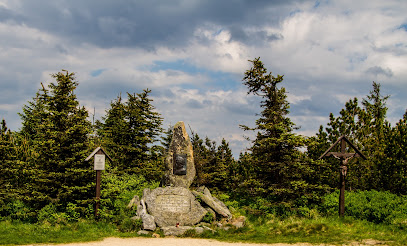
King's View / Královka - Observation Tower
Experience breathtaking panoramic views at King's View Observation Tower, a must-visit landmark in the scenic Janov nad Nisou region of the Czech Republic.
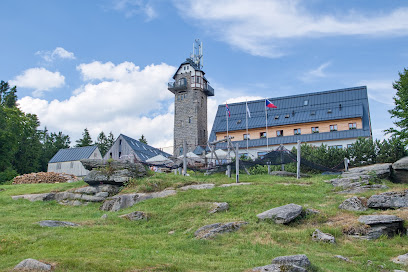
Přírodní rezervace Údolí Jizery u Semil a Bítouchova
Explore the breathtaking Jizera Valley Nature Reserve, a national park perfect for hiking, wildlife watching, and discovering stunning landscapes in the Czech Republic.
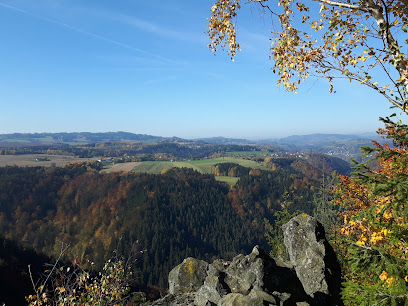
forest Jizera
Explore the stunning landscapes and tranquil trails of the Jizera Forest, a must-visit natural gem in the heart of the Jizera Mountains.
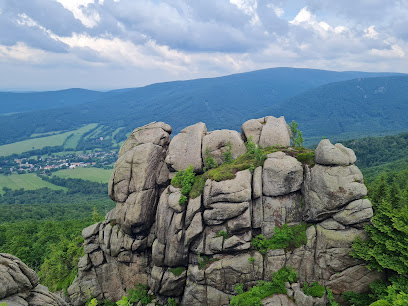
Josephs Mine Dam
Explore the natural beauty and tranquility of Josephs Mine Dam, a must-visit tourist attraction near Jablonec nad Nisou, perfect for nature lovers and adventure seekers.
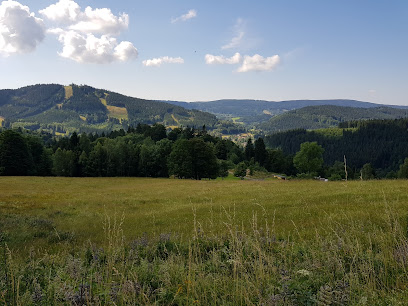
Ferrata Kočičí kameny
Experience the breathtaking views and thrilling climbs at Ferrata Kočičí kameny, a premier via ferrata in the Czech Republic's stunning landscape.
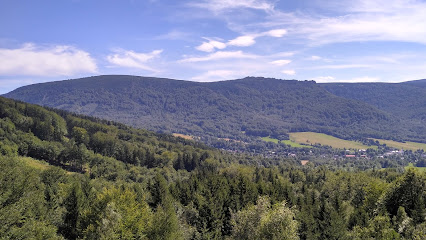
Jezdec Castle
Explore the historical charm and breathtaking views of Jezdec Castle in Liberec, a hidden gem in the heart of the Czech Republic.
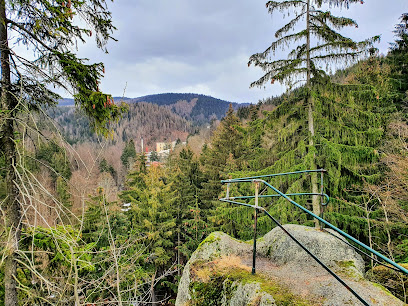
Poacher stones
Experience the breathtaking views and tranquility of Poacher Stones, a stunning vista point in Kořenov-Polubný, a nature lover's paradise.
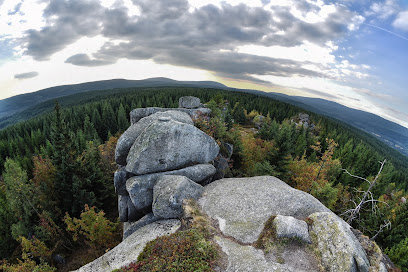
Hnojový Dům
Experience the enchanting landscapes and rich cultural heritage of Hnojový Dům in the Jizera Mountains, a perfect escape for nature lovers and adventurers.
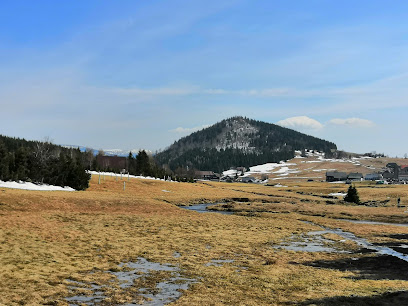
The Plaque Rock
Discover The Plaque Rock, a breathtaking tri-border landmark where the Czech Republic, Poland, and Germany converge amidst stunning natural beauty.
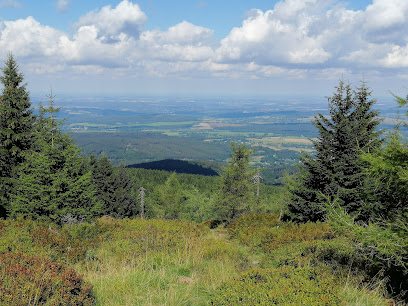
Prosečský hřeben
Discover the breathtaking trails and stunning views at Prosečský Hřeben, the perfect hiking destination near Jablonec nad Nisou.
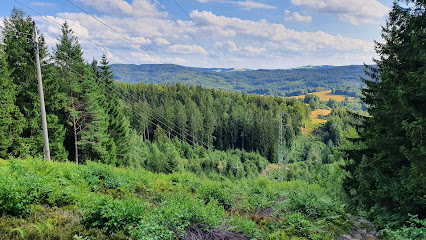
Jizera
Explore the Jizera Mountain Peak: A breathtaking destination for nature lovers and adventure seekers in the Czech Republic.
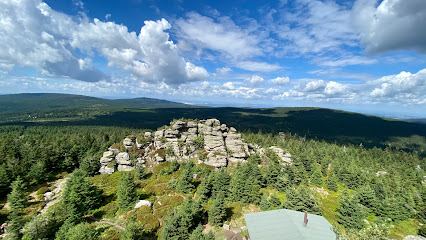
Klinger mausoleum
Discover the Klinger Mausoleum, a serene historical landmark in Nové Město pod Smrkem, showcasing stunning architecture and rich cultural heritage.
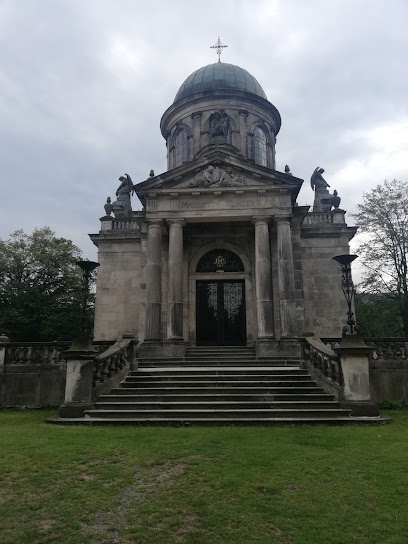
Chráněná krajinná oblast Jizerské hory
Discover the breathtaking landscapes and serene trails of Jizerské hory Nature Preserve, a true haven for nature enthusiasts in the Czech Republic.
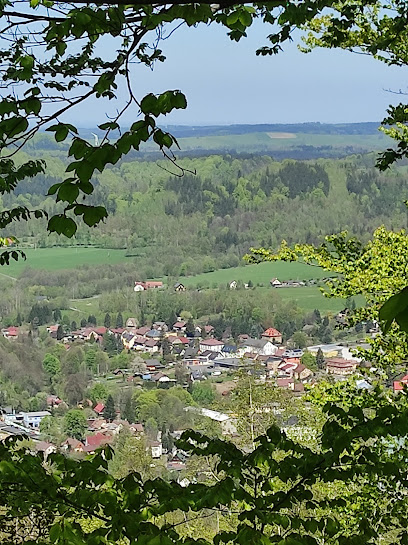
Unmissable attractions to see
Kamieńczyk Waterfall
Explore the breathtaking Kamieńczyk Waterfall, Poland's tallest waterfall, surrounded by stunning nature in Szklarska Poręba.

Karkonosze National Park
Explore the stunning Karkonosze National Park in Poland, a paradise for nature lovers and adventure seekers with breathtaking landscapes and rich biodiversity.
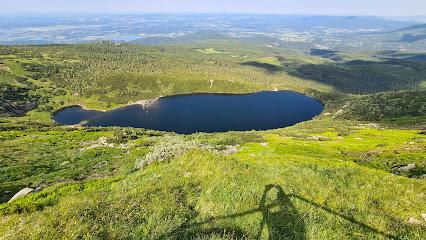
Mumlava Falls
Experience the natural beauty of Mumlava Falls in the Krkonoš Mountains, a stunning waterfall and hiking destination perfect for nature lovers and adventure seekers.
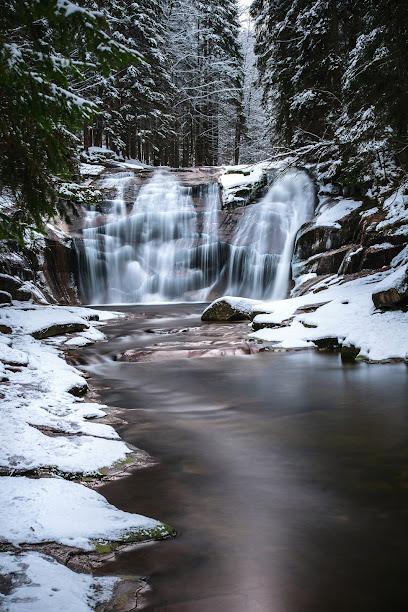
Valdštejn Castle
Explore Valdštejn Castle: A stunning historical attraction surrounded by breathtaking nature in the heart of the Czech Republic.
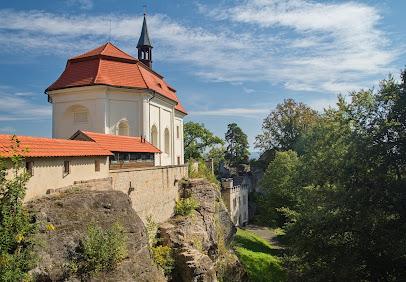
Smrk / Tafelfichte Observation Tower
Experience breathtaking views at Smrk/Tafelfichte Observation Tower in the Czech Republic, an iconic tourist attraction amid stunning natural landscapes.
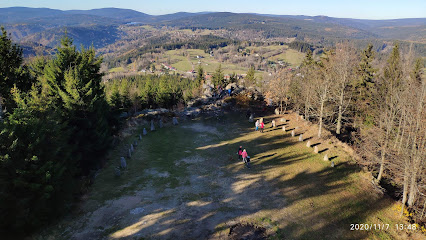
King's View / Královka - Observation Tower
Experience panoramic views and serene hiking at King's View Observation Tower in Janov nad Nisou, a perfect destination for nature lovers.
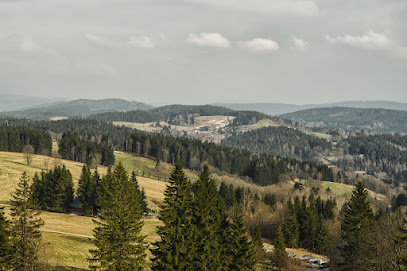
Přírodní rezervace Údolí Jizery u Semil a Bítouchova
Explore the stunning landscapes and diverse wildlife of Údolí Jizery Nature Reserve, a true haven for outdoor enthusiasts and nature lovers.
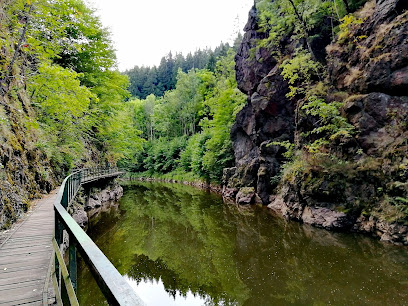
Vodopády Jedlové
Explore Vodopády Jedlové: A breathtaking waterfall and hiking area in the Jizera Mountains, perfect for outdoor enthusiasts and nature lovers.
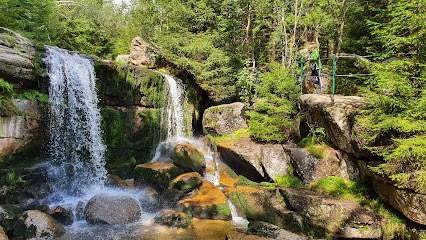
Ořešník Viewpoint
Discover the unmatched beauty of Ořešník Viewpoint in Ferdinandov, a perfect blend of nature and breathtaking landscapes.
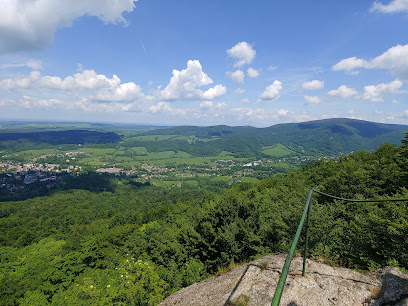
forest Jizera
Discover the serene beauty of the Forest Jizera, a natural haven in the Czech Republic perfect for hiking, wildlife watching, and peaceful retreats.
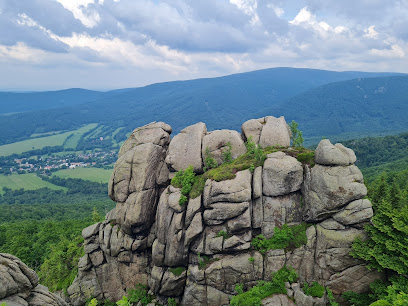
Jedlový důl
Discover the breathtaking landscapes and serene ambiance of Jedlový Důl, a stunning nature preserve in the heart of the Jizera Mountains.
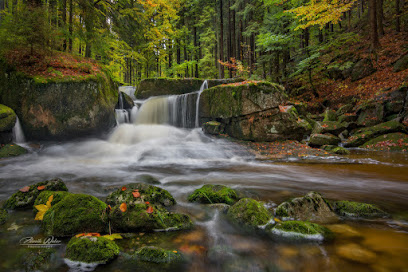
Waterfalls of Cerna Desna
Experience the breathtaking beauty of the Waterfalls of Cerna Desna, a natural gem in the heart of the national forest, perfect for relaxation and adventure.
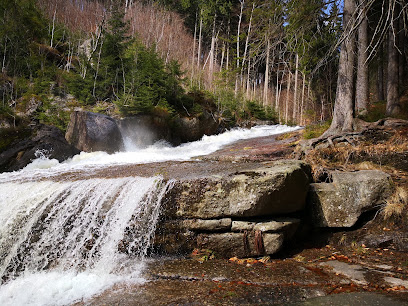
Josephs Mine Dam
Explore the serene beauty and rich history of Josephs Mine Dam, a scenic gem in the Czech Republic perfect for nature lovers and history enthusiasts.
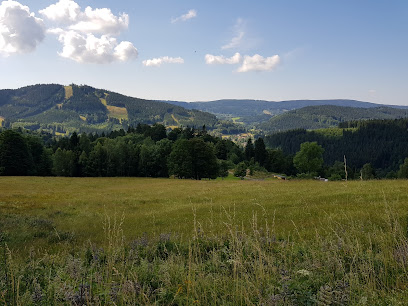
Source Novoměstská kyselka
Discover the refreshing allure of Source Novoměstská Kyselka, a charming fountain in Nové Město pod Smrkem offering mineral water and stunning nature views.
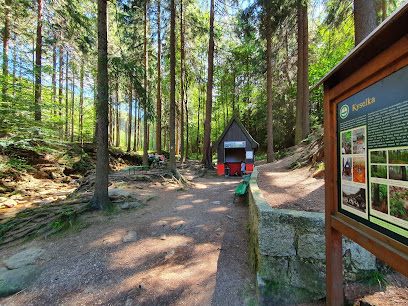
Ferrata Kočičí kameny
Experience the excitement of climbing in nature at Ferrata Kočičí kameny, a breathtaking via ferrata in Bílý Potok-Hejnice that offers stunning views and adventure.
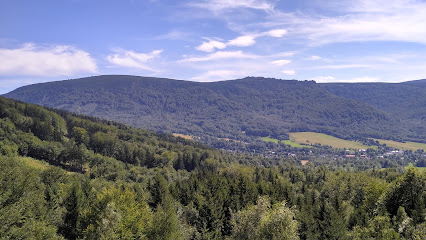
Essential places to dine
Restaurace Harrachov | U Dvou kocourů
Experience authentic Czech cuisine amidst the natural beauty of Harrachov at Restaurace Harrachov | U Dvou kocourů.
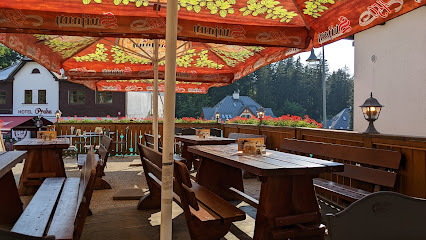
Terassa
Discover Terassa in Harrachov: A perfect blend of stunning views and authentic Czech cuisine for an unforgettable dining experience.
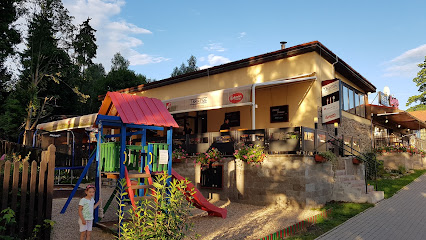
Restaurace pod Jasanem
Experience the best of Czech cuisine at Restaurace pod Jasanem in Harrachov - where flavors meet stunning mountain views.
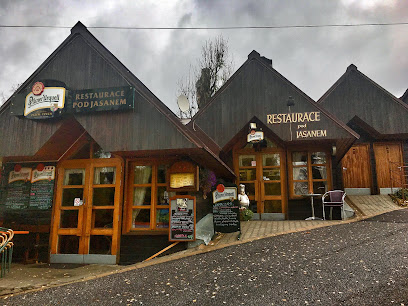
Restaurace a penzion Bílý Mlýn Liberec
Experience authentic Czech flavors and cozy lodging at Restaurace a penzion Bílý Mlýn in beautiful Liberec.
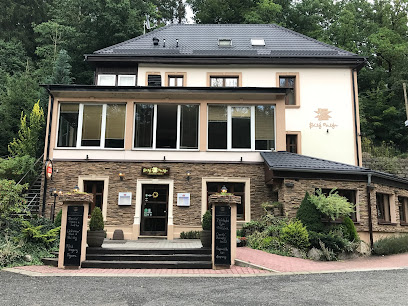
Restaurace a penzion U Toníčka - Jizerské hory
Experience traditional Czech cuisine and warm hospitality at Restaurace a penzion U Toníčka in the stunning Jizerské Hory mountains.
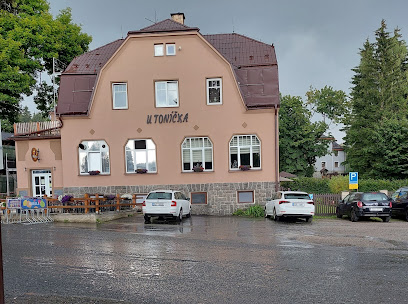
Chalet Smědava
Experience the charm of Chalet Smědava – a cozy hotel and restaurant nestled in Bílý Potok's breathtaking natural landscape.
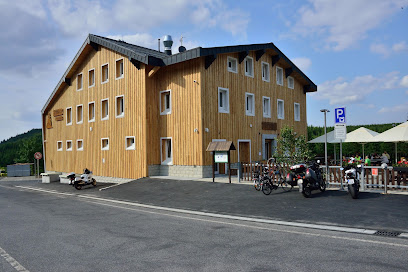
Fisherman's Bastion
Experience authentic Czech cuisine at Fisherman's Bastion in Liberec – where tradition meets taste in a welcoming atmosphere.
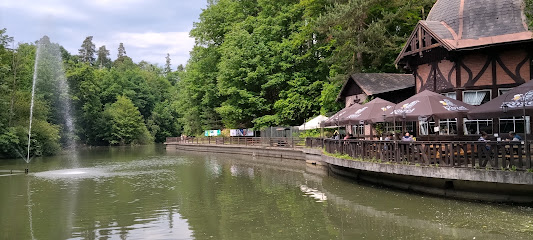
The Green Tree Inn
Experience authentic Czech cuisine at The Green Tree Inn in beautiful Lázně Libverda - where tradition meets flavor in every dish.
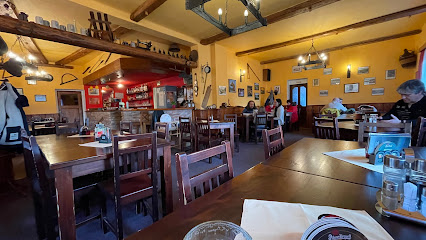
Restaurace Dělnický dům
Discover authentic Czech cuisine at Restaurace Dělnický dům – where tradition meets flavor in a cozy atmosphere.
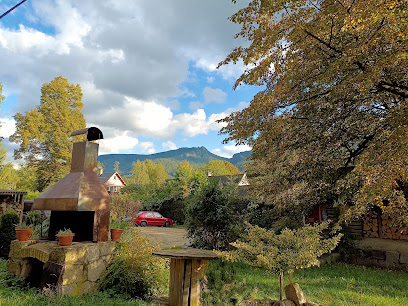
Pivovar Novosad
Discover authentic Czech cuisine and exquisite house-brewed beers at Pivovar Novosad in scenic Harrachov.
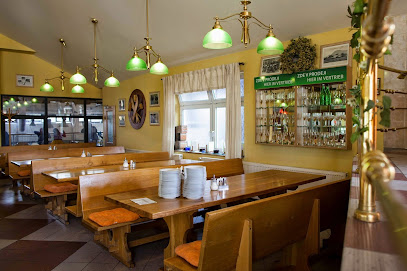
RESTAURACE Mlýn 62
Discover authentic Czech cuisine at RESTAURACE Mlýn 62 in Mníšek-Chrastava - a culinary haven blending tradition with modern comfort.
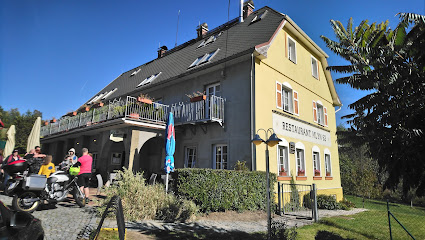
Chata na Souši
Experience authentic Czech cuisine in a cozy mountain retreat at Chata na Souši, surrounded by breathtaking nature in Jizerské Hory.
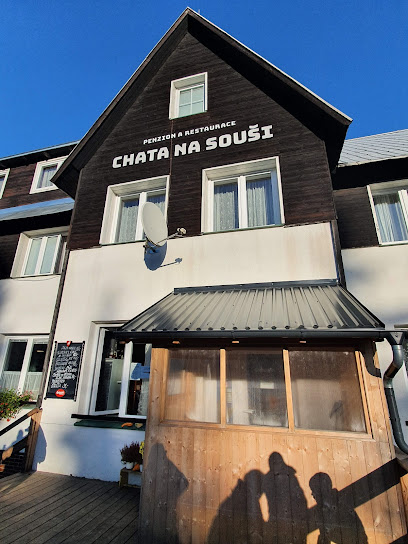
Bike Bistro U všech andělů
Discover Bike Bistro U všech andělů: A cyclist's paradise blending delicious Czech cuisine with warm hospitality in Nové Město pod Smrkem.
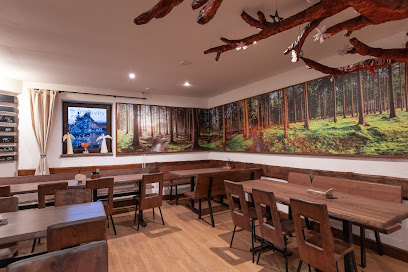
Restaurant Stone
Experience authentic Czech cuisine in the heart of Harrachov at Restaurant Stone – where tradition meets taste.
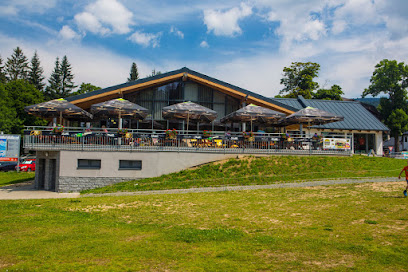
Restaurant Rotunda
Experience the flavors of Harrachov at Restaurant Rotunda - where local ingredients meet culinary excellence in a stunning mountain setting.
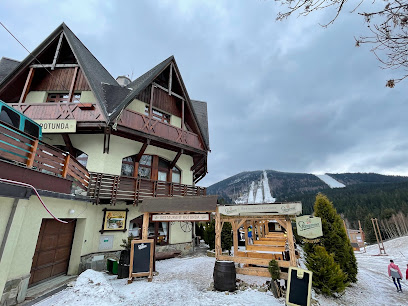
Markets, malls and hidden boutiques
Obchodní Dům Jizeran
Discover the charm of Obchodní Dům Jizeran, a bustling shopping mall in Nové Město pod Smrkem, where retail therapy meets local culture.
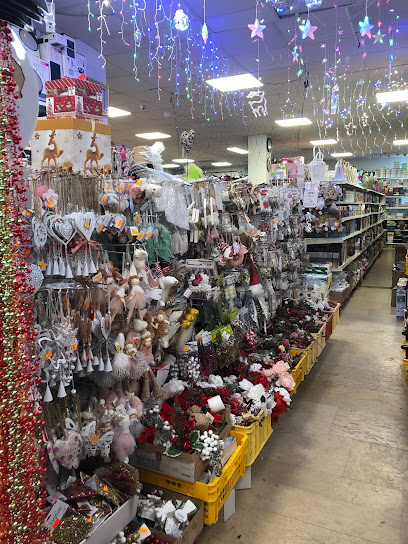
Grocery store Malá Jizera
Discover local flavors and essentials at Malá Jizera Grocery Store in Jablonec nad Nisou, your go-to destination for fresh produce and Czech specialties.
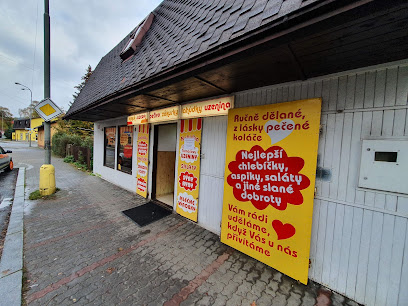
ESO Market POTRAVINY H&Z
Explore local flavors and unique products at ESO Market POTRAVINY H&Z in Hejnice, a must-visit for authentic Czech experiences.
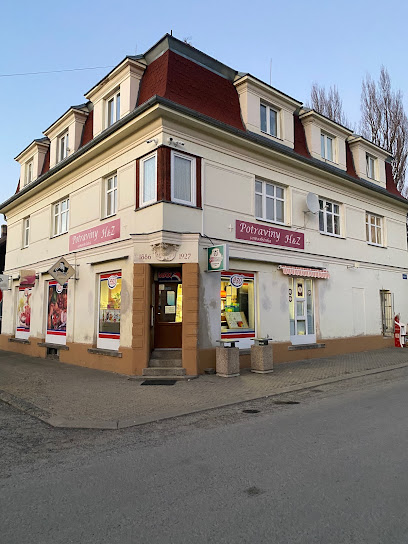
Smíšené Zboží
Explore local flavors and authentic products at Smíšené Zboží, the charming grocery store in Bílý Potok, Czech Republic.
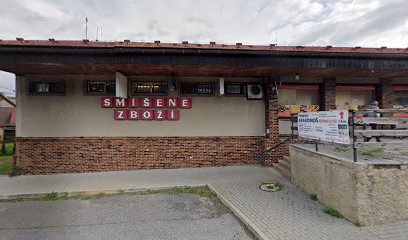
Potraviny
Explore the flavors of Smržovka at Potraviny, your go-to local grocery store for fresh produce and Czech delicacies.
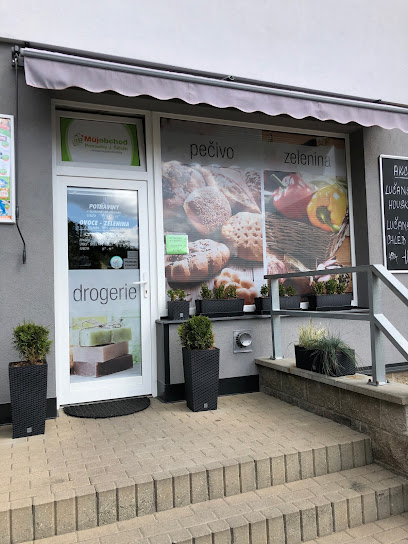
Občerstvení a suvenýry u rozhledny Štepánka na Hvězdě
Discover authentic Czech souvenirs and delicious local snacks at Občerstvení a suvenýry u rozhledny Štepánka na Hvězdě, the perfect stop for every traveler.
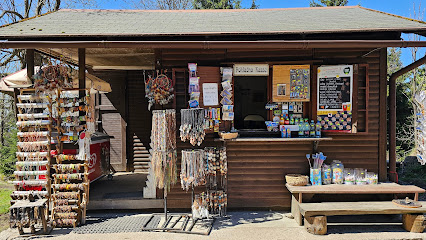
Sklo - Bižuterie Prodejna Morávková Alena
Explore Sklo - Bižuterie Prodejna Morávková Alena for stunning costume jewelry that embodies local craftsmanship and unique style in Smržovka.
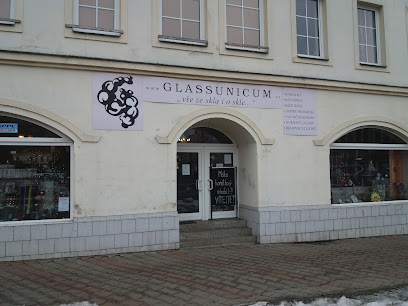
Stánek Na parkovišti
Explore unique souvenirs and delicious fast food at Stánek Na parkovišti in the picturesque Lázně Libverda.
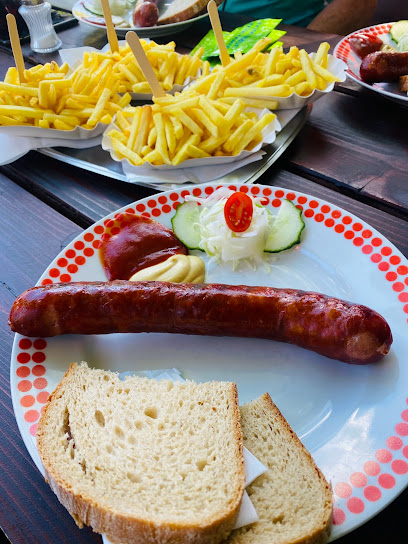
Bižu - Nova, S.r.o.
Discover exquisite costume jewelry and handcrafted metalwork at Bižu - Nova in Smržovka, a must-visit for unique souvenirs.
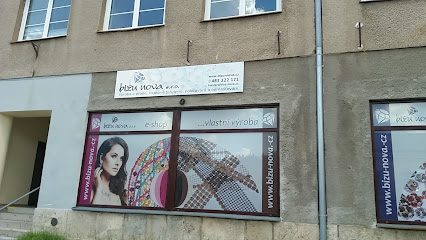
2ndShop.cz
Explore sustainable fashion at 2ndShop.cz in Jablonecké Paseky, where unique styles and eco-friendly choices await every visitor.

Kouzlo Myšlenky - Paulina Havlasová
Explore Kouzlo Myšlenky in Smržovka for unique gifts that embody local artistry and culture, perfect for souvenirs and special occasions.
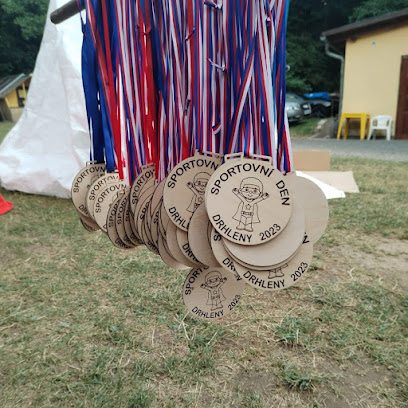
SBA Shop prodejna Tanvald
Discover the unique blend of home goods, tobacco, and betting at SBA Shop in Desná, a delightful stop for tourists.
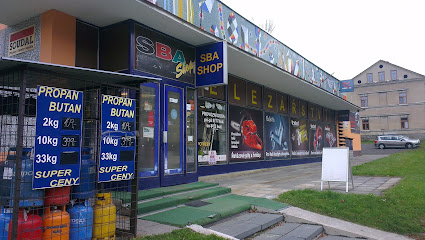
Radek Aljančič
Explore the exquisite artistry of Radek Aljančič, a premier jewelry designer in Janov nad Nisou, where each piece tells a unique story of craftsmanship.
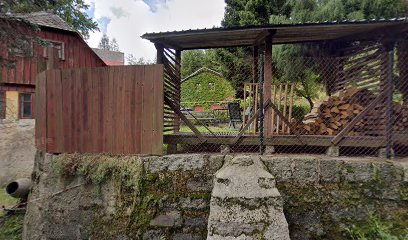
Azupa Design
Discover unique clothing and accessories at Azupa Design, a stylish boutique in Hejnice, celebrating local fashion and creativity.
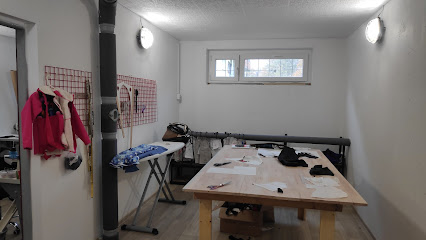
Bohemian Gifts
Explore the charm of Czech craftsmanship at Bohemian Gifts, where every item is a unique reflection of local culture and artistry.

Essential bars & hidden hideouts
Na Knejpě
Discover Na Knejpě: A fast food haven nestled in the heart of nature, serving delicious meals in a tranquil setting in Hejnice.
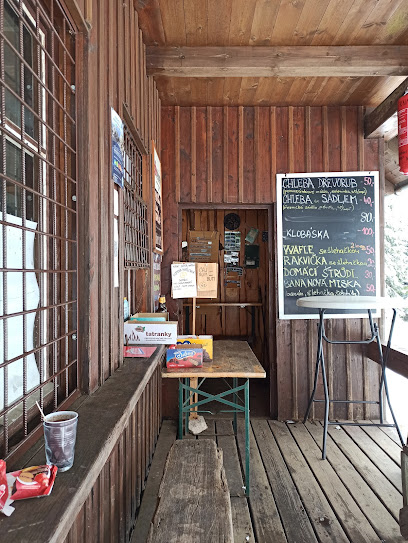
CIHELNA BAR
Experience the vibrant nightlife at Cihelna Bar, where delightful drinks and a welcoming atmosphere await in Jablonec nad Nisou.
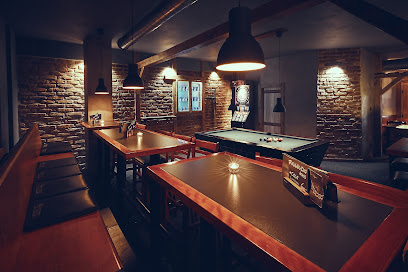
Pivnice Rybářská bašta
Discover the authentic taste of Czech cuisine and local beers at Pivnice Rybářská Bašta, a charming pub in Jablonec nad Nisou.
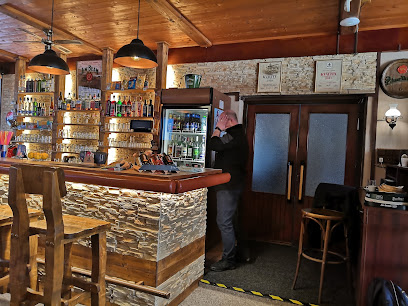
Hospůdka U Bakaláře
Experience the essence of Czech hospitality at Hospůdka U Bakaláře, a charming pub in Mšeno nad Nisou offering local cuisine and a warm atmosphere.
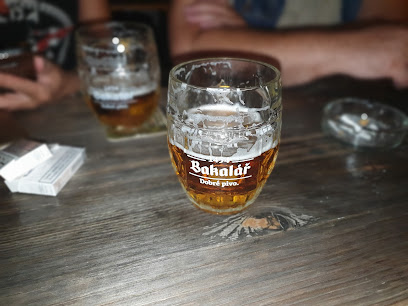
Dolfin Café•Tapas Bar
Experience the unique flavors of Spain at Dolfin Café•Tapas Bar, a cozy spot in Bedřichov blending delightful tapas and a warm cafe atmosphere.
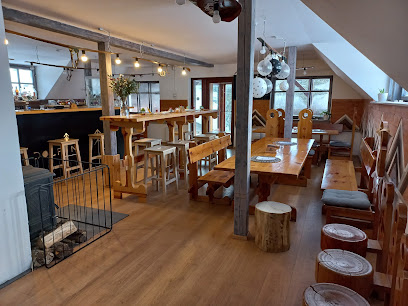
Fatra Lučany nad Nisou
Discover Fatra Lučany nad Nisou, a cozy pub in the heart of the Czech Republic offering local beers and traditional cuisine in a warm atmosphere.
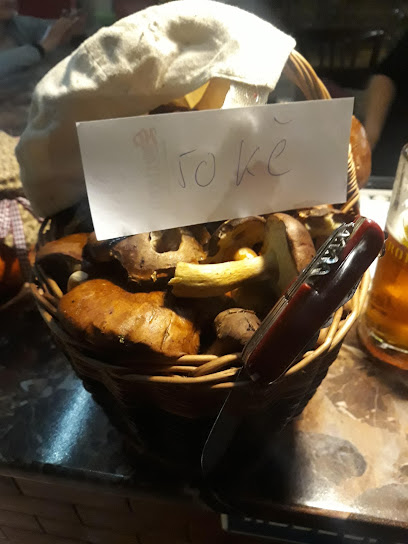
Pivnice Starý Lázně
Experience the charm of Czech culture at Pivnice Starý Lázně, a welcoming pub in Velké Hamry with local beers and traditional cuisine.
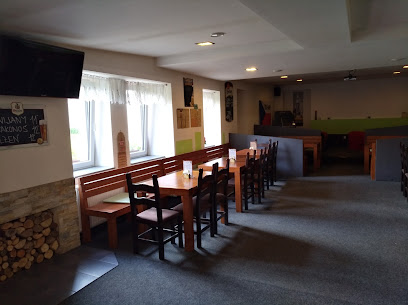
Espresobar
Experience the vibrant atmosphere and diverse drinks at Espresobar, a cozy bar in Nové Město pod Smrkem, perfect for tourists and locals alike.

Krakonoš u Hodbodě
Discover authentic Czech hospitality and local brews at Krakonoš u Hodbodě, a cozy pub in the heart of Mšeno nad Nisou.
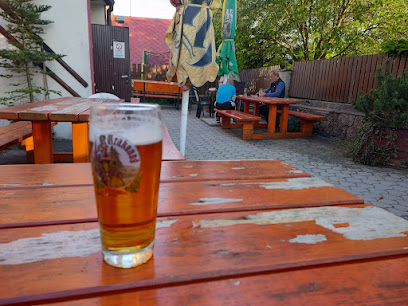
Jimmy bar
Discover the lively spirit of Mšeno nad Nisou at Jimmy Bar, where great drinks and a welcoming atmosphere await.
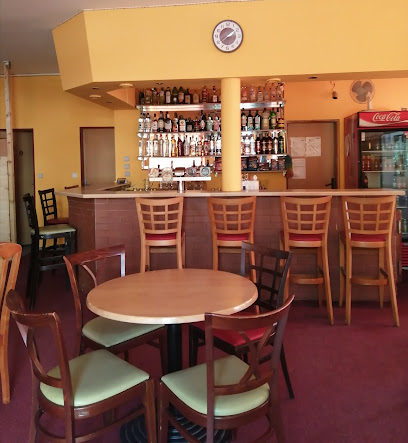
Bar
Discover the vibrant nightlife of Smržovka at this charming bar, where great drinks and friendly locals await you.
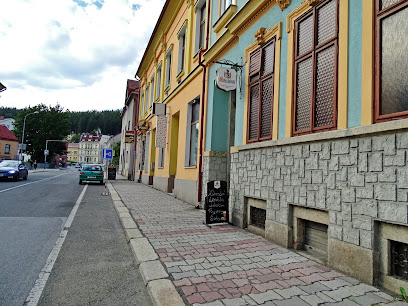
Jedová chýše
Discover the charm of Jedová chýše, a cozy bar in the breathtaking Jizera Mountains, offering a delightful drink experience in stunning natural surroundings.
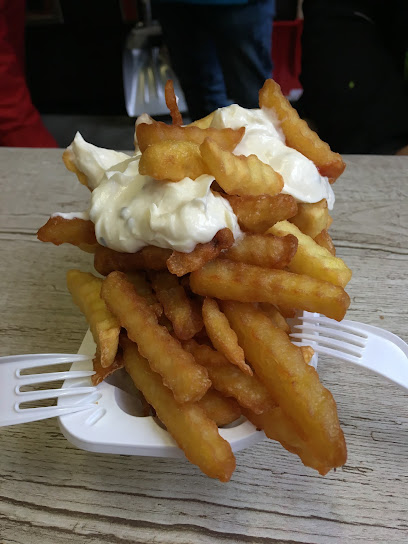
Karavánek u Vrby
Experience the charm of Hejnice at Karavánek u Vrby, a cozy bar serving local drinks and traditional Czech cuisine in a welcoming atmosphere.
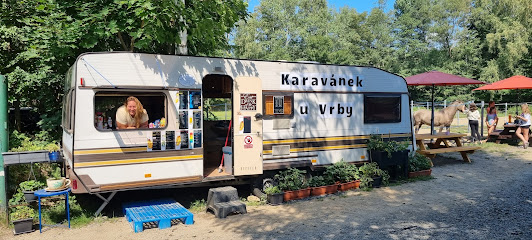
Hospůdka U Kostela
Discover the cozy charm of Hospůdka U Kostela in Janov nad Nisou, a perfect blend of traditional Czech cuisine and warm hospitality.
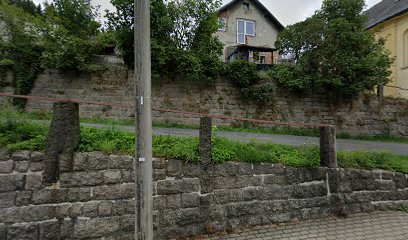
Local Phrases about Jizera Mountains
-
- HelloAhoj
[ahoy] - GoodbyeNashledanou
[nash-leda-noh] - YesAno
[ah-noh] - NoNe
[neh] - Please/You're welcomeProsím
[pro-seem] - Thank youDěkuji
[dyeh-koo-yi] - Excuse me/SorryPromiňte
[pro-meen-teh] - How are you?Jak se máte?
[yak seh mah-teh] - Fine. And you?Dobře. A vy?
[dobr-zhe. ah vee] - Do you speak English?Mluvíte anglicky?
[mloo-vee-teh ahng-leet-skee] - I don't understandNerozumím
[neh-roh-zoo-meem]
- HelloAhoj
-
- I'd like to see the menu, pleaseRád bych viděl menu, prosím
[rahd bikh vih-dyel meh-noo, pro-seem] - I don't eat meatNemám rád maso
[neh-mahm raad mah-soh] - Cheers!Na zdraví!
[nah zdra-vee] - I would like to pay, pleaseChtěl bych zaplatit, prosím
[khtyel bikh zah-pla-teet, pro-seem]
- I'd like to see the menu, pleaseRád bych viděl menu, prosím
-
- Help!Pomoc!
[poh-mohts] - Go away!Jdi pryč!
[ydee prihch] - Call the Police!Zavolej policii!
[zah-vo-ley po-lee-tsee] - Call a doctor!Zavolej lékaře!
[zah-vo-ley lyeh-kah-reh] - I'm lostZtratil jsem se
[ztra-teel yehm seh] - I'm illJsem nemocný
[yehm neh-mohts-nee]
- Help!Pomoc!
-
- I'd like to buy...Chtěl bych koupit...
[khtyel bikh kooh-peet] - I'm just lookingJen se dívám
[yehn seh dee-vaam] - How much is it?Kolik to stojí?
[koh-leek toh stoy-ee] - That's too expensiveTo je příliš drahé
[toh yeh pree-lee-sh dra-heh] - Can you lower the price?Můžete snížit cenu?
[moo-zheh-teh snee-zheet tseh-noo]
- I'd like to buy...Chtěl bych koupit...
-
- What time is it?Kolik je hodin?
[koh-leek yeh ho-deen] - It's one o'clockJe jedna hodina
[yeh yed-nah ho-dee-nah] - Half past (10)Půl jedenácté
[pool yed-nyant-seh] - MorningRáno
[rah-noh] - AfternoonOdpoledne
[od-poh-led-neh] - EveningVečer
[veh-cher] - YesterdayVčera
[v-cheh-rah] - TodayDnes
[dnes] - TomorrowZítra
[zee-trah] - 1Jedna
[yed-nah] - 2Dva
[dvah] - 3Tři
[tree] - 4Čtyři
[ch-tihr-zhee] - 5Pět
[pyet] - 6Šest
[shest] - 7Sedm
[sedm] - 8Osm
[osm] - 9Devět
[deh-vyett] - 10Deset
[deh-set]
- What time is it?Kolik je hodin?
-
- Where's a/the...?Kde je...
[kdeh yeh] - What's the address?Jaká je adresa?
[yah-kah yeh ah-dreh-sah] - Can you show me (on the map)?Můžete mi ukázat (na mapě)?
[moo-zheh-teh mee oo-kah-zaht nah mah-peh] - When's the next (bus)?Kdy jede další (autobus)?
[kdee yeh-deh dahl-shee ow-toh-boos] - A ticket (to ....)Jednu jízdenku (do ...)
[yed-noo yeez-dehn-koo doh]
- Where's a/the...?Kde je...
History of Jizera Mountains
-
The Jizera Mountains, known as Jizerské hory in Czech, have a rich history dating back to ancient times. Archaeological findings suggest that the area was inhabited by early human settlers during the Neolithic period. These first inhabitants were primarily hunters and gatherers, taking advantage of the dense forests and abundant wildlife.
-
During the Middle Ages, the Jizera Mountains saw the rise of the glassmaking industry, which became one of the region's most important economic activities. The local sand, rich in silica, provided the perfect material for high-quality glass. By the 14th century, glassmakers from the Jizera Mountains were renowned across Europe for their craftsmanship. Entire villages, such as Kristiánov and Antonínov, were established around glassworks.
-
The Habsburg Monarchy, which ruled over Czech lands from the 16th century until the early 20th century, brought significant changes to the Jizera Mountains. The region was integrated into the broader European trade networks, and industrialization began to take root. The establishment of railways and roads improved access, and the local economy diversified with the introduction of textile manufacturing and mining.
-
The Jizera Mountains were not immune to the tumultuous events of the 20th century. During World War II, the region was part of the Sudetenland, which was annexed by Nazi Germany. Post-war, the expulsion of the German-speaking population led to significant demographic changes. The newly established Czechoslovak government promoted the resettlement of the area by Czechs and other Slavic peoples.
-
In the latter half of the 20th century, awareness of environmental conservation grew, leading to the establishment of protected areas within the Jizera Mountains. In 1968, the Jizerské hory Protected Landscape Area was created to preserve the unique natural beauty and biodiversity of the region. This marked the beginning of a new era focused on sustainable tourism and environmental protection.
-
Today, the Jizera Mountains are a popular destination for outdoor enthusiasts and culture buffs alike. The region offers a wide range of activities, from hiking and skiing to exploring historical sites and museums. Local festivals celebrate the rich cultural heritage, including traditional glassmaking and folk music, ensuring that the history of the Jizera Mountains continues to be cherished and preserved.
Jizera Mountains Essentials
-
The Jizera Mountains, located in the northern part of Czechia, are accessible via multiple routes. The nearest international airport is Václav Havel Airport in Prague, approximately 130 kilometers away. From Prague, you can take a train or a bus to Liberec, a city that serves as a gateway to the Jizera Mountains. The journey takes about 2 to 3 hours. Alternatively, you can rent a car and drive directly to the mountains, which offers flexibility and the opportunity to explore the scenic countryside.
-
Once in the Jizera Mountains, you have several options for getting around. Local buses and trains connect major towns and tourist spots. For more remote areas, renting a car is advisable. Biking is also popular, with numerous trails available. Taxis are available in larger towns like Liberec, but may not be as frequent in smaller villages. Hiking is a common mode of exploration, with well-marked trails crisscrossing the mountains.
-
The official currency in Czechia is the Czech Koruna (CZK). Credit and debit cards are widely accepted in hotels, restaurants, and shops in larger towns. However, it's advisable to carry some cash, especially if you plan to visit smaller villages or rural areas. ATMs are available in larger towns like Liberec and Jablonec nad Nisou. Ensure you have sufficient cash before heading into more remote areas where card payments may not be accepted.
-
The Jizera Mountains are generally safe for tourists. However, it's always wise to take standard precautions. Avoid leaving valuables unattended and be cautious in crowded places. There are no specific high-crime areas targeting tourists, but it's best to stay vigilant. When hiking, always stick to marked trails and inform someone about your route and expected return time. Weather conditions can change rapidly, so be prepared with appropriate gear.
-
In case of emergency, dial 112 for immediate assistance, which connects you to all emergency services. Local medical facilities are available in towns like Liberec and Jablonec nad Nisou. It's recommended to have travel insurance that covers medical emergencies and outdoor activities. For minor health issues, pharmacies are available in larger towns. Always carry a basic first aid kit, especially if you plan on hiking or engaging in outdoor activities.
-
Fashion: Do dress in layers and wear sturdy hiking boots if exploring the mountains. Avoid wearing flip-flops or open-toed shoes on trails. Religion: Do respect local churches and chapels. Dress modestly and behave quietly when visiting religious sites. Public Transport: Do validate your ticket before boarding trains and buses. Don't forget to offer your seat to elderly passengers. Greetings: Do greet people with a friendly 'Dobrý den' (Good day). A handshake is a common greeting. Eating & Drinking: Do try local dishes like 'svíčková' and 'knedlíky'. Don't leave food on your plate, as it's considered wasteful.
-
To experience the Jizera Mountains like a local, visit the small villages and interact with the residents. Attend local festivals and markets, where you can sample traditional foods and crafts. Don't miss the chance to explore the numerous hiking and biking trails that offer stunning views and a sense of tranquility. For a unique experience, visit the Jizerka settlement, one of the highest and oldest mountain villages, and enjoy stargazing in this low-light pollution area.
Trending Landmarks in Jizera Mountains
-
Smrk / Tafelfichte Observation Tower
-
King's View / Královka - Observation Tower
-
Přírodní rezervace Údolí Jizery u Semil a Bítouchova
-
forest Jizera
-
Josephs Mine Dam
-
Ferrata Kočičí kameny
-
Jezdec Castle
-
Poacher stones
-
Hnojový Dům
-
The Plaque Rock
-
Prosečský hřeben
-
Jizera
-
Klinger mausoleum
-
Chráněná krajinná oblast Jizerské hory
Nearby Cities to Jizera Mountains
-
Things To Do in Kutná Hora
-
Things To Do in Prague
-
Things To Do in Dresden
-
Things To Do in Wroclaw
-
Things To Do in Plzeň
-
Things To Do in Karlovy Vary
-
Things To Do in Opole
-
Things To Do in Olomouc
-
Things To Do in Brno
-
Things To Do in Leipzig
-
Things To Do in Poznan
-
Things To Do in České Budějovice
-
Things To Do in Berlin
-
Things To Do in Potsdam
-
Things To Do in Český Krumlov












